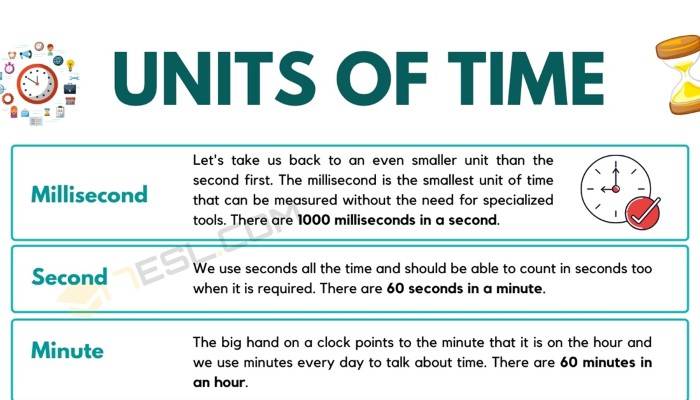Time is an essential aspect of our lives, often measured and managed to keep our daily routines on track. One common question that arises is, “How many seconds are in a day?” This seemingly simple question opens the door to a fascinating exploration of time measurement, its significance, and its various applications. In this comprehensive blog post, we will delve into the answer, explore the importance of timekeeping, and discuss how time is managed and utilized across different fields and cultures.
Understanding the Basics: How Many Seconds in a Day?

Basic Calculation
To determine the number of seconds in a day, we start with the basic units of time:
- 1 minute = 60 seconds
- 1 hour = 60 minutes
- 1 day = 24 hours
Using these units, we can calculate the total number of seconds in a day:
Seconds in a day=24 hours/day×60 minutes/hour×60 seconds/minute\text{Seconds in a day} = 24 \, \text{hours/day} \times 60 \, \text{minutes/hour} \times 60 \, \text{seconds/minute}Seconds in a day=24hours/day×60minutes/hour×60seconds/minute
Seconds in a day=86,400 seconds\text{Seconds in a day} = 86,400 \, \text{seconds}Seconds in a day=86,400seconds
Thus, there are 86,400 seconds in a standard day.
Leap Seconds and Their Impact
While the calculation above provides the number of seconds in a typical day, the introduction of leap seconds can occasionally alter this total. Leap seconds are added to Coordinated Universal Time (UTC) to keep atomic time in sync with Earth’s rotational time. Since 1972, 27 leap seconds have been added, each causing a specific day to have 86,401 seconds.
Historical Perspective on Time Measurement
Ancient Timekeeping
Ancient civilizations developed various methods to measure time based on the movement of celestial bodies:
- Sundials: Used by ancient Egyptians and Greeks, sundials measured time by tracking the shadow cast by the sun.
- Water Clocks: Employed by the Chinese and Greeks, water clocks measured time based on the flow of water from one container to another.
- Hourglasses: Utilized by various cultures, hourglasses measured time through the flow of sand from one chamber to another.
Development of Mechanical Clocks
The invention of mechanical clocks in the Middle Ages marked a significant advancement in timekeeping. These clocks used gears and weights to measure time more accurately. The introduction of the pendulum clock by Christiaan Huygens in the 17th century further improved accuracy.
Modern Timekeeping and Atomic Clocks
The 20th century saw the development of atomic clocks, which measure time based on the vibrations of atoms. Atomic clocks are incredibly precise, with the ability to measure time to within a billionth of a second. This precision is essential for various applications, including global positioning systems (GPS) and scientific research.
The Importance of Timekeeping
Daily Life and Routine
Accurate timekeeping is essential for managing daily activities and routines. From waking up in the morning to meeting deadlines at work, timekeeping helps structure our lives and ensures coordination and efficiency.
Scientific Research
In scientific research, precise time measurement is crucial for conducting experiments, collecting data, and analyzing results. Fields such as physics, astronomy, and chemistry rely heavily on accurate timekeeping to achieve reliable and reproducible results.
Global Communication and Navigation
Timekeeping plays a vital role in global communication and navigation. Systems like GPS depend on synchronized atomic clocks to provide accurate positioning information. Additionally, timekeeping is essential for coordinating activities across different time zones, facilitating international communication and commerce.
Applications of Time Measurement
Astronomy and Space Exploration
In astronomy and space exploration, time measurement is crucial for tracking celestial events, navigating spacecraft, and conducting experiments. Precise timekeeping allows astronomers to predict the movement of celestial bodies, study the universe, and plan space missions.
Transportation and Logistics
The transportation and logistics industries rely on accurate timekeeping to ensure the efficient movement of goods and people. Airlines, shipping companies, and public transportation systems use synchronized clocks to coordinate schedules, track shipments, and manage operations.
Financial Markets
In financial markets, time is money. Accurate timekeeping is essential for trading, as even milliseconds can make a significant difference in transactions. Stock exchanges and trading platforms use precise clocks to timestamp trades and ensure fair and efficient markets.
Cultural Perspectives on Time
Western Cultures
In many Western cultures, time is viewed as linear and valuable, with an emphasis on punctuality and efficiency. Time management is often associated with productivity, and being on time is considered a sign of respect and reliability.
Eastern Cultures
Some Eastern cultures have a more flexible view of time, placing greater emphasis on relationships and experiences than strict schedules. In these cultures, time may be seen as cyclical, with a focus on the natural flow of events and the importance of being present in the moment.
Indigenous Cultures
Many indigenous cultures have unique perspectives on time, often tied to natural cycles and environmental changes. These cultures may measure time based on seasonal events, the phases of the moon, or the migration patterns of animals.
Technological Advances in Timekeeping
Quartz Clocks
Quartz clocks, introduced in the 20th century, use the vibration of quartz crystals to measure time accurately. These clocks are widely used in household appliances, wristwatches, and other consumer electronics due to their reliability and affordability.
GPS and Satellite Clocks
Global Positioning System (GPS) technology relies on a network of satellites equipped with atomic clocks. These satellites transmit precise time signals to GPS receivers, enabling accurate positioning and navigation.
Internet Time Synchronization
With the advent of the internet, Network Time Protocol (NTP) allows computers and devices to synchronize their clocks with atomic time servers. This technology ensures consistent and accurate timekeeping across global networks.
The Future of Timekeeping
Optical Clocks
Optical clocks, which measure time based on the vibrations of light waves, represent the next frontier in timekeeping. These clocks promise even greater precision than atomic clocks, with potential applications in scientific research, telecommunications, and navigation.
Quantum Clocks
Quantum clocks, utilizing the principles of quantum mechanics, are being developed to achieve unprecedented accuracy. These clocks could revolutionize timekeeping and enable new technologies in fields such as computing and cryptography.
International Time Standards
As timekeeping technology advances, international standards for time measurement will continue to evolve. Collaboration between global institutions, such as the International Bureau of Weights and Measures (BIPM), ensures the consistent and accurate definition of time worldwide.
Practical Tips for Effective Time Management
Prioritization and Planning
Effective time management involves prioritizing tasks and planning ahead. Use tools like to-do lists, calendars, and planners to organize your activities and allocate time for important tasks.
Avoiding Procrastination
Procrastination can hinder productivity and increase stress. Break tasks into smaller, manageable steps, and set deadlines to stay focused and motivated.
Balancing Work and Leisure
Maintaining a healthy work-life balance is essential for overall well-being. Allocate time for work, rest, and leisure activities to ensure a balanced and fulfilling life.
Understanding Time Zones and Daylight Saving Time
Time Zones
Time zones are regions of the Earth that have the same standard time. They are essential for coordinating activities across different regions. Understanding time zones is crucial for international communication and travel.
Daylight Saving Time
Daylight Saving Time (DST) involves adjusting the clocks forward in the spring and backward in the fall to make better use of daylight. While DST aims to conserve energy and extend daylight hours, it can also cause confusion and disrupt daily routines.
The Significance of Seconds in a Day
Understanding the number of seconds in a day—86,400—provides a fundamental insight into the measurement of time. From ancient sundials to modern atomic clocks, the quest for accurate timekeeping has shaped human history and enabled technological advancements. Timekeeping is essential for daily life, scientific research, global communication, and various industries.
Related Post:
Phoenix Suns vs. Minnesota Timberwolves: Analyzing Player Stats in Their Latest Matchup
Clippers vs. Dallas Mavericks: Analyzing Player Stats in Their Latest Matchup
Understanding Red Flag (Fire Weather) Warnings: What You Need to Know
As technology continues to evolve, the precision and accuracy of time measurement will only improve, opening new possibilities for innovation and discovery. Whether managing daily routines, exploring the cosmos, or trading in financial markets, the ability to measure and manage time remains a cornerstone of human progress.
By appreciating the significance of each second in a day, we can better understand the value of time and strive to use it wisely and effectively in our personal and professional lives.




